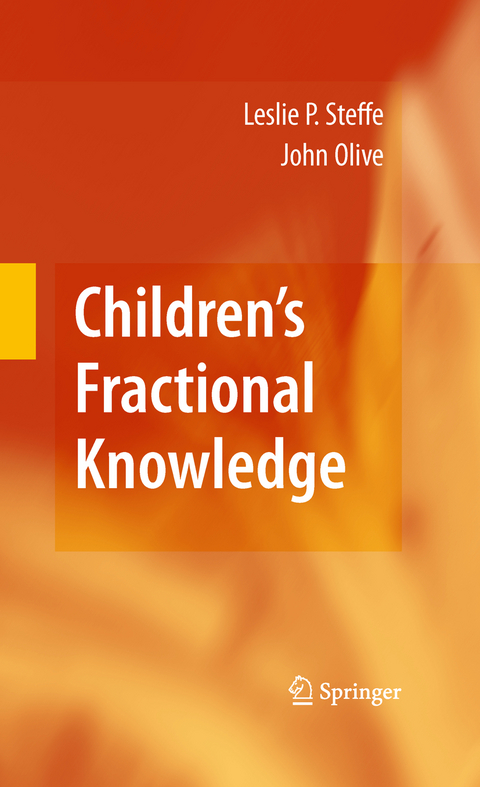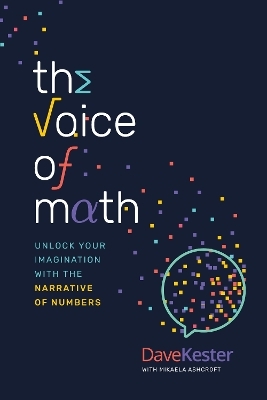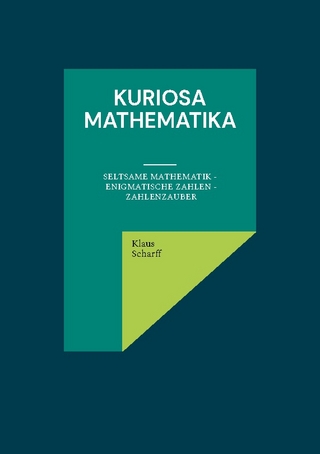
Children's Fractional Knowledge
Seiten
2014
Springer-Verlag New York Inc.
978-1-4899-8466-1 (ISBN)
Springer-Verlag New York Inc.
978-1-4899-8466-1 (ISBN)
In this book, the authors challenge some broadly-held assumptions about how children learn about fractions. After detailing their arguments, they then offer new research that could open the way for a dramatically improved way to teach children fractions.
Children’s Fractional Knowledge elegantly tracks the construction of knowledge, both by children learning new methods of reasoning and by the researchers studying their methods. The book challenges the widely held belief that children’s whole number knowledge is a distraction from their learning of fractions by positing that their fractional learning involves reorganizing—not simply using or building upon—their whole number knowledge. This hypothesis is explained in detail using examples of actual grade-schoolers approaching problems in fractions including the schemes they construct to relate parts to a whole, to produce a fraction as a multiple of a unit part, to transform a fraction into a commensurate fraction, or to combine two fractions multiplicatively or additively.
These case studies provide a singular journey into children’s mathematics experience, which often varies greatly from that of adults. Moreover, the authors’ descriptive terms reflect children’s quantitative operations, as opposed to adult mathematical phrases rooted in concepts that do not reflect—and which in the classroom may even suppress—youngsters’ learning experiences.
Highlights of the coverage:
Toward a formulation of a mathematics of living instead of being
Operations that produce numerical counting schemes
Case studies: children’s part-whole, partitive, iterative, and other fraction schemes
Using the generalized number sequence to produce fraction schemes
Redefining school mathematics
This fresh perspective is of immediate importance to researchers in mathematics education. With the up-close lens onto mathematical development found in Children’s Fractional Knowledge, readers can work toward creating more effective methods for improving young learners’ quantitative reasoning skills.
Children’s Fractional Knowledge elegantly tracks the construction of knowledge, both by children learning new methods of reasoning and by the researchers studying their methods. The book challenges the widely held belief that children’s whole number knowledge is a distraction from their learning of fractions by positing that their fractional learning involves reorganizing—not simply using or building upon—their whole number knowledge. This hypothesis is explained in detail using examples of actual grade-schoolers approaching problems in fractions including the schemes they construct to relate parts to a whole, to produce a fraction as a multiple of a unit part, to transform a fraction into a commensurate fraction, or to combine two fractions multiplicatively or additively.
These case studies provide a singular journey into children’s mathematics experience, which often varies greatly from that of adults. Moreover, the authors’ descriptive terms reflect children’s quantitative operations, as opposed to adult mathematical phrases rooted in concepts that do not reflect—and which in the classroom may even suppress—youngsters’ learning experiences.
Highlights of the coverage:
Toward a formulation of a mathematics of living instead of being
Operations that produce numerical counting schemes
Case studies: children’s part-whole, partitive, iterative, and other fraction schemes
Using the generalized number sequence to produce fraction schemes
Redefining school mathematics
This fresh perspective is of immediate importance to researchers in mathematics education. With the up-close lens onto mathematical development found in Children’s Fractional Knowledge, readers can work toward creating more effective methods for improving young learners’ quantitative reasoning skills.
A New Hypothesis Concerning Children’s Fractional Knowledge.- Perspectives on Children’s Fraction Knowledge.- Operations That Produce Numerical Counting Schemes.- Articulation of the Reorganization Hypothesis.- The Partitive and the Part-Whole Schemes.- The Unit Composition and the Commensurate Schemes.- The Partitive, the Iterative, and the Unit Composition Schemes.- Equipartitioning Operations for Connected Numbers: Their Use and Interiorization.- The Construction of Fraction Schemes Using the Generalized Number Sequence.- The Partitioning and Fraction Schemes.- Continuing Research on Students’ Fraction Schemes.
| Erscheint lt. Verlag | 3.9.2014 |
|---|---|
| Zusatzinfo | XXIII, 364 p. |
| Verlagsort | New York |
| Sprache | englisch |
| Maße | 155 x 235 mm |
| Themenwelt | Schulbuch / Wörterbuch |
| Mathematik / Informatik ► Mathematik ► Arithmetik / Zahlentheorie | |
| Sozialwissenschaften ► Pädagogik ► Schulpädagogik / Grundschule | |
| ISBN-10 | 1-4899-8466-6 / 1489984666 |
| ISBN-13 | 978-1-4899-8466-1 / 9781489984661 |
| Zustand | Neuware |
| Haben Sie eine Frage zum Produkt? |
Mehr entdecken
aus dem Bereich
aus dem Bereich
Sieben ausgewählte Themenstellungen
Buch | Softcover (2024)
De Gruyter Oldenbourg (Verlag)
64,95 €
unlock your imagination with the narrative of numbers
Buch | Softcover (2024)
Advantage Media Group (Verlag)
19,90 €
Seltsame Mathematik - Enigmatische Zahlen - Zahlenzauber
Buch | Softcover (2024)
BoD – Books on Demand (Verlag)
20,00 €


